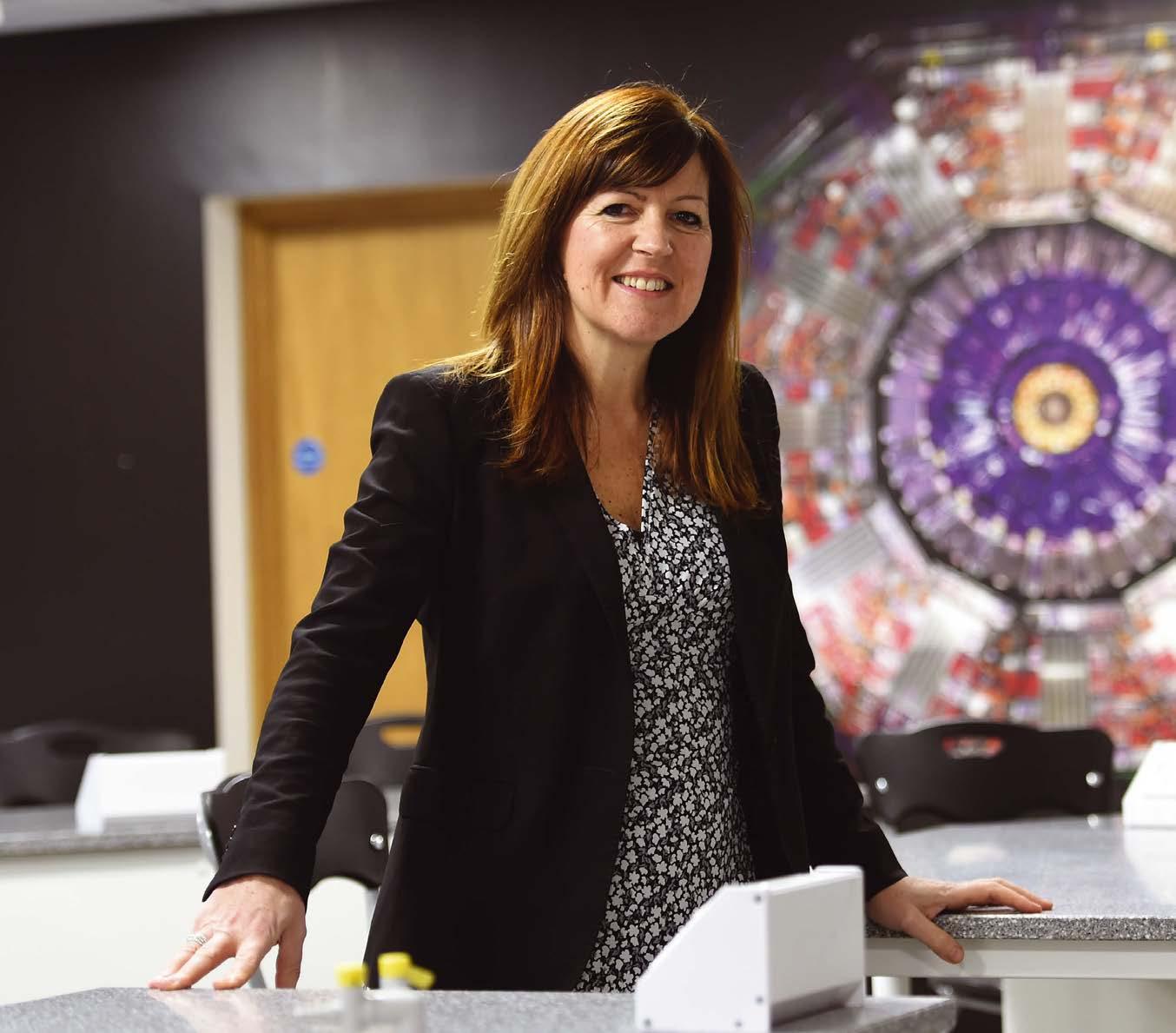OPINION
DAVID RUSSELL
ADAPTING TO COVID
Plotting a new route The impact of Covid-19 has changed the way in which the further education sector operates, perhaps forever. It’s down to us to help shape what the future looks like, says David Russell t’s a tough time. It’s a strange time. It’s a time of anxiety and of loss. When I began to write this, in April, I knew that a small number of readers would have lost loved ones to Covid-19. Now, in late May, the numbers have climbed up the international league of woe. Though the fear may currently be receding as we look to a relaxation of lockdown, we have all suffered loss of one kind or another, even if we have been spared the loss of a loved one. We have lost some freedom due to confinement, and psychologically we have lost freedom from fear. We have lost the future along with the pre-Covid world we knew. The threat of the virus will recede – in time, maybe all but vanish – but we can never go back to a world in which the pandemic never happened. That familiar world – for all its problems – we are all grieving. What does this mean for teachers and for post-16 education policy? In the short term, it is too early to tell. So much depends on how the pandemic progresses and what the science dictates in terms of physical distancing in the months ahead. But we cannot simply wait and see. We are not currently in the
I
THE FLIGHT WE WERE EXPECTING TO CATCH WILL NEVER FLY
waiting room or delayed in the departure lounge, waiting to see when our flight will finally take off and our lives will resume. This is our life now. We have to live it, and shape it, and do our best with it for those in our sphere of responsibility. Many teachers and leaders have spoken about how proud they have been of their colleagues’ responses to lockdown, and how quickly colleges and providers flipped their provision to online almost overnight. I’ve heard some amazing stories, especially from the world of local authority adult education, where teachers and leaders have turned their hands to all sorts of different work: for example delivering health and social care training for volunteers, staffing venues for adults in need of social care, and assisting with ‘reablement’ (helping people at home that have been released from hospital to make room for Covid beds). Truly, adult learning services lie at the heart of our communities. Many others are worried about the financial impact, especially independent training providers who stand to be hit hardest by funding decisions around apprenticeships. It will be a terrible loss for our sector if skilled and dedicated teachers, trainers and assessors find themselves unemployed because goodquality providers cannot ride out the financial storm. Most of all, as is so typical of our sector, people have spoken to me about their concern for the learners. Digital education body JISC has pointed out that an estimated 30,000 or more of the poorest 16- to 18-year-olds do not have even a mobile phone on which to learn, let alone
a laptop or tablet. Many more do, but have data packages that will not stretch to fulltime online learning as well as normal use; young people will make choices, and not always good ones. Colleagues have spoken of their worry about high numbers of unemployed in the coming months across the economy – possibly averaging 20%, and much higher in some areas. They ask whether the sector will have the right provision in place to give those people the training and support they need. Most immediately there is concern about young people’s disengagement from learning over the long summer of confinement, and whether we will have a ‘Covid generation’ whose progression is permanently hit and in which the disadvantage gap is even wider than the norm. One College CEO spoke of the sense of loss of the ability to be a social and educational leveller, “the power to generate equality” which is the driving motivation for so many of us in the further education sector. As a leader, my first response of course has been to secure my organisation and the safety and future of those who work in it and make it what it is. But quickly we moved on to the next circle out: the needs of the teachers and sector leaders we serve. This is very hard, as their needs are changing, unknown and currently unknowable. And then, beyond the sector itself, is the economy and society it in turn serves: what knowledge, skills, wisdom and wonder will our sector need to focus on to help our young people and adults thrive in the world as it unfolds in the coming years? I do not know. So like everyone, I keep listening, talking and reading. We are not in the airport departure lounge. The flight we were expecting to catch will never fly. This is our journey now, and we are already on it. Let’s look out the windows and talk about where to head our plane. Together. It could be amazing.
DAVID RUSSELL is chief executive of the Education and Training Foundation
8 INTUITION SUMMER 2020
08-09 Opinions_Intuition June 2020_Intuition 8
28/05/2020 08:33











